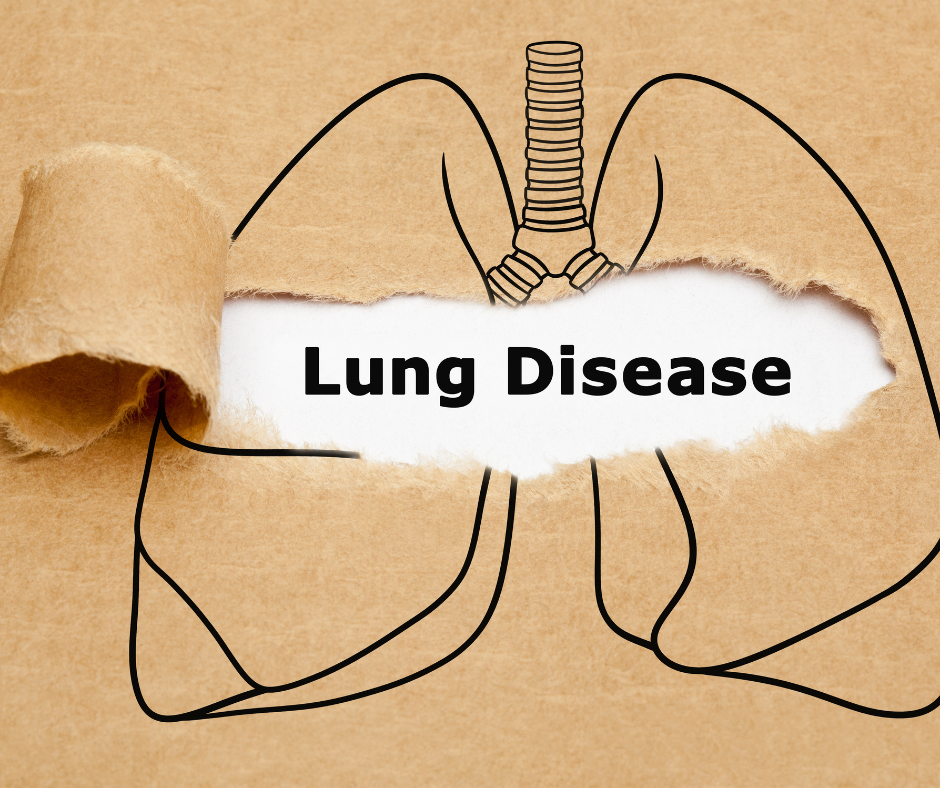#ACR24 Abstracts: Social Determinants, Patient Outcomes, Women's Health, and Risk Assessments
The American College of Rheumatology (ACR) Conference 2024 highlighted the profound impact of social determinants of health, patient outcomes, women's health, and risk assessment on rheumatic disease management.
Social Determinants of Health
Addressing Economic Insecurities Could Improve Patient-Reported Outcomes in Lupus
The study explores how economic insecurities (like food, housing, healthcare, and financial insecurity) impact patient-reported outcomes in people with Systemic Lupus Erythematosus (SLE). It found that those with any economic insecurity had significantly worse outcomes across various measures, including physical function, quality of life, and mental health. Addressing these insecurities could potentially improve the health and well-being of SLE patients
This program implemented social determinants of health (SDoH) screening in rheumatology clinics. It revealed persistent needs such as food insecurity, difficulty paying for utilities, and medication access issues. The program provided community resources and assistance to address these needs
The study explores the associations between social determinants of health (SDoH) and acute care use (hospitalizations and emergency department visits) among individuals with systemic lupus erythematosus (SLE), rheumatoid arthritis (RA), and osteoarthritis (OA) in the All of Us Research Program. The findings indicate that adverse SDoH, such as economic insecurities, healthcare access challenges, and neighborhood vulnerabilities, are significantly associated with higher rates of acute care use. Additionally, repeated experiences of discrimination were linked to significantly higher rates of acute care use compared to those with less frequent experiences
Patient-reported Social Risk Factor Screening Among Rheumatology Outpatients
This study implemented a patient-reported social risk factor (SRF) screening tool among 148 rheumatology outpatients (79% of 187 patients) to identify social determinants impacting their care. The tool assessed four core SRF domains (financial strain, housing instability, food insecurity, transportation needs) and four supplemental domains (physical inactivity, social isolation, stress, depression). The screening revealed significant social risk factors with potential to influence health outcomes. The research underscores the importance of SRF screening in rheumatology to enhance patient care and outcomes.
This study investigated whether rural residence and lower income increase the likelihood of myocardial infarction (MI) hospitalization and worsen outcomes in patients with rheumatoid arthritis (RA), compared to urban-dwelling patients. Key findings included that rural RA patients were nearly twice as likely to be hospitalized for MI as urban patients (adjusted odds ratio [aOR] of 1.70), and lower income was also linked to higher MI hospitalization odds. The research revealed worse outcomes for rural and lower-income patients, underscoring substantial healthcare access and outcome disparities.
Predictors of Patient Engagement and Usability in a Chronic Musculoskeletal Pain Management App
This study investigated predictors of patient engagement and usability of POCOS, a chronic musculoskeletal pain management app. The research explored how clinical and demographic factors impacted patient interaction with the app. Key findings included that 64% of participants agreed to use the app, with 55% actually downloading it, and 50% of downloaders actively using it. Significant correlations were found between app use and opiate medication (r = 0.57) and PTSD (r = 0.55), while depression was negatively correlated with use (r = -0.47). A strong correlation existed between completed health forms and app use (r = 0.84), indicating high compliance in documenting patient-reported outcomes.
Patient Outcomes
Study identifies factors associated with hospital readmissions within 30 days for rheumatoid arthritis patients: women, younger age, government insurance, additional health issues, smoking, hypertension, prednisone use, alcohol consumption, liver problems, atypical RA, and adult-onset Still's disease.
The study found that obesity, use of prednisone, and patient-reported outcomes (like fatigue and overall activity) are predictors of becoming difficult-to-treat in patients with rheumatoid arthritis (RA) who are on their first biologic or targeted synthetic disease-modifying antirheumatic drug (DMARD).. On the other hand, taking methotrexate concurrently was associated with a lower risk of becoming difficult-to-treat
The study focuses on developing and validating a brief measure of uncertainty among patients with vasculitis and other rheumatic diseases. The researchers aimed to create a shorter version of the existing Mishel Uncertainty in Illness Scale to make it more practical for routine clinical use. The new measure was tested for internal consistency and convergent validity, and it was found to effectively capture the key aspects of uncertainty related to rheumatic illnesses. Additionally, the study explored the primary sources of uncertainty in patients with systemic vasculitis through qualitative analysis.
Risk Assessments
Researchers used a large database of hospital patients to analyze data from 2016 to 2019 to study the risk of skin cancer in people with autoimmune diseases. They found that certain autoimmune diseases, like rheumatoid arthritis, systemic lupus erythematosus, and systemic sclerosis, are linked to a higher risk of a type of skin cancer called cutaneous squamous cell carcinoma.Those with dermatomyositis have a higher risk of melanoma, another type of skin cancer. Regular skin checks are important for people with these autoimmune conditions!
Native Americans Experience Profound Premature Mortality from Rheumatoid Arthritis
This study emphasizes the substantial premature mortality that Native Americans experience due to rheumatoid arthritis (RA). The research analyzed Centers for Disease Control and Prevention national mortality database data from 1999 to 2020. Key findings included that Native Americans had the highest age-standardized RA mortality rate (5.14 per 100,000 persons), which was 10.8 times greater than non-Hispanic whites aged 44 and younger. While the disparity lessened with age, it remained significant. Importantly, RA mortality rates decreased for most racial/ethnic groups over time except for Native Americans. The study underscores the urgent need for targeted interventions to address the elevated RA mortality among Native Americans.
More Than a Monolith: Disaggregating Rheumatoid Arthritis Prevalence Among Asian American Subgroups
This study investigated rheumatoid arthritis (RA) prevalence among different Asian American subgroups to highlight diagnosis and treatment disparities. The research analyzed data from 303,340 women aged 65-85 years in Kaiser Permanente Northern California. RA prevalence varied among subgroups, ranging from 1.0% in Filipinas to 2.8% in South Asians. Compared to non-Hispanic White women, RA prevalence was similar for Filipinas (0.9) but higher for South Asians (2.5). The study emphasizes the importance of disaggregating data among Asian American subgroups to better understand and address RA disparities.
This systematic review sought to determine the primary reasons for hospitalization among individuals with inflammatory arthritis (IA) conditions, such as rheumatoid arthritis and gout. The study found that the most common causes for hospitalization were arthritis flares (sudden worsening of symptoms), infections (attributed to a weakened immune system), cardiac issues, and ambulatory care-sensitive conditions (those manageable with proper outpatient care)..
Women’s Health
The study found that anti-cyclic citrullinated peptide (anti-CCP) antibodies are increased in the female genital tract mucosa during the postpartum period in women without rheumatoid arthritis (RA). This suggests that local inflammation in the genital tract may contribute to the generation of these antibodies, which are typically associated with RA.. The study included women who had given birth within the past 12 months and found higher levels of anti-CCP antibodies compared to non-postpartum women.
This study examined how sex influences medication adherence in patients with rheumatoid arthritis (RA), psoriatic arthritis (PsA), or systemic lupus erythematosus (SLE). The research included 31,033 patients, with 27.3% identifying as male. Key findings showed that male patients had higher medication adherence than female patients (80.3% vs. 77.2%). Factors such as age, medication type, geographic location, and social determinants of health also impacted adherence. Overall, the study suggests that male RA, SLE, and PsA patients had better medication adherence than female patients, underscoring the need for targeted interventions to enhance adherence among women.
Rheumatology on Reddit: A Descriptive Analysis
This study conducted a descriptive analysis of rheumatology-related communities on Reddit. The research aimed to identify rheumatology-specific subreddits, describe characteristics such as subscribers and activity, and perform sentiment analyses to understand user interactions. Key findings included that 20 active subreddits met inclusion criteria, with the oldest being r/Fibromyalgia; subscribers ranged from 2,000 (r/Behcets) to 70,000 (r/Fibromyalgia); peak activity was between 16:00 and 23:00, with most in the year's second half; and common concerns were patient age and the COVID-19 vaccine's impact on rheumatic and musculoskeletal disease patients.
Key Takeaways for Patients
- Economic insecurities significantly impact patient-reported outcomes in SLE, highlighting the importance of addressing basic needs.
- Socioeconomic status substantially influences OA prevalence and risk factors, necessitating targeted interventions.
- Rural-dwelling RA patients and those with lower income face increased cardiovascular risks, emphasizing the need for equitable access to care.
- Patient engagement with digital health tools is influenced by factors like medication use and mental health status.
- The postpartum period may be associated with increased autoantibody production in women without RA.
- Medication adherence varies by sex in rheumatic disease patients, with males tending to have higher adherence.
- Native Americans experience significantly higher premature RA mortality, necessitating urgent, culturally tailored interventions.
- Rheumatoid arthritis prevalence varies substantially among Asian American subgroups, highlighting the importance of data disaggregation.
The ACR Conference 2024 abstracts underscore the complex interplay of social determinants, patient outcomes, women's health, and risk assessment in rheumatic disease management. By acknowledging and addressing these factors, healthcare providers can deliver more holistic, equitable care, ultimately improving the lives of patients with rheumatic diseases.
Sign up for our newsletters
International Foundation for AiArthritis
6605 Nottingham Ave.
St. Louis, MO 63109-2661
Tax ID: 27-1214308
Toll Free: 1-877-609-4226
Email: info@AiArthritis.org
Copyright 2024. All rights reserved. Information on this site is intended for informational purposes only Our foundation does not engage in the practice of medicine. Please consult a physician to obtain personal healthcare and treatment options. 501(c) 3 Nonprofit Tax ID: 27-1214308.






